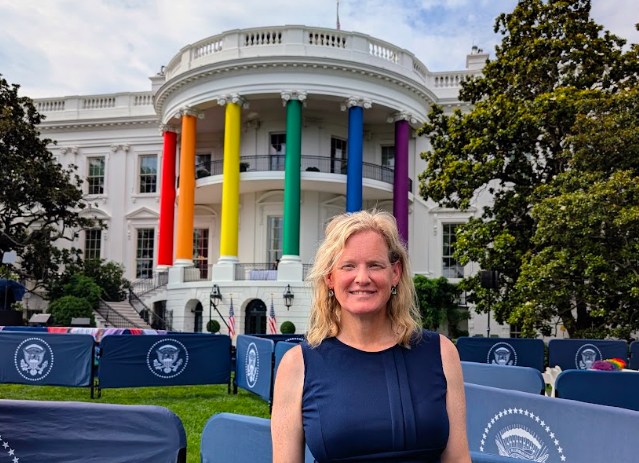A Swampy Summer in DC

This week we look at pluralism vs partisanship and how technology can be better used in policing communities.
You want to support my work but don't need a keynote from a mad scientist? Please become a paid subscriber to this newsletter and recommend to friends!
Research Roundup
Pluralism vs Partisanship
I’ve spoken before of my belief in pluralism. It is difficult and uncomfortable and absolutely essential to a healthy society.
A lack of pluralism drives sometimes bizarre (and ultimately self-destructive) behaviors. While “overwhelming majorities…oppose violations of democratic norms, and virtually nobody supports partisan violence”, those same voters preferentially upvote and reshare hostile and derogatory social posts by politicians. We cannot say we are against violence and then support candidates that voice violent impulses, even if it feels satisfying. This is training both candidates and the next generation to reject their own neighbors.
In contrast, pluralism enhances the efficacy of social change. Outgroup protests are perceived as more violent than the equitable ingroup protests. When in- and outgroups act together, however, this “increases protest approval, reduces perceptions of violence, and raises the likelihood of participation”. For example, an “analysis of tens of thousands of images shared on social media during the 2020 BLM protests” found “greater presence of Whites in the images” correlated with greater societal engagement.
Never be more skeptical of others than of yourself.
Robocop
How does technology interact with policing? From AI to social media it reveals both clear evidence of bias but also opportunities for improvement.
An analysis of all Facebook posts “from almost 14,000 Facebook pages maintained by US law enforcement agencies” reveals an overrepresentation of “Black suspects by 25 percentage points relative to local arrest rates”. This distortion “occurs across crime types and geographic regions and increases with the proportion of both Republican voters and non-Black residents”. This drives significant misperceptions of crime rates but can be reversed.
Another source of bias comes from algorithmic policing, but one research project turned that on its head. By developing a model that “forecasts crime by learning spatiotemporal dependencies from event reports…in Chicago for crimes predicted per week within ~1,000 ft”, research were able to show the increases in crime in more affluent neighborhoods drove substantial higher responses than in “socioeconomically disadvantaged areas, as demonstrated in eight major US cities”.
Policing has the opportunity to use technology to improve engagement with communities and equitable distributions of often sacred resources, but as with any organization it must use these tools to challenge itself to become better.
Weekly Indulgence
Imagine my surprise when I arrive at the white House last week to share my new research only to discover that they’d dressed it up just for me 🙂 #whitehouse #pride


Stage & Screen
- July 2, Boston: National Charter School Association We must change education or we'll be trapped in a future that needs explorers but builds cogs.
- July 3, London: I'm giving a lecture AI & Women's Health at UCL (more to follow).
- July 22, DC: Keynote at Jobs For the Future Horizons!
Upcoming this Fall (tentative)
- August 14-15 Napa: Mandrake Capital Partners
- September 8, Athens: ESOMAR
- September 11, Seoul: World Knowledge Forum
- September 12-14, NYC: Out In Tech
- September 25, SF: BCG Australia
- September 26, Wyoming
- October 1-4, Singapore: Hyper Island and more! (Book me!!!)
Find more upcoming talks, interviews, and other events on my Events Page.
If your company, university, or conference just happen to be in one of the above locations and want the "best keynote I've ever heard" (shockingly spoken by multiple audiences last year)?
<<Please support my work: book me for a keynote or briefing!>>
SciFi, Fantasy, & Me
Who couldn’t love a reverse Pinocchio fairytale about a young man raised by robots after a robot uprising has ended humanity? Not you? Try In the Lives of Puppets.
I enjoyed the juxtaposition of the post-apocalyptic stakes looming over the highly stylized fairytale stylings. It evoked Pushing Daisies meets the Terminator.
Vivienne L'Ecuyer Ming
| Follow more of my work at | |
|---|---|
| Socos Labs | The Human Trust |
| Dionysus Health | Optoceutics |
| RFK Human Rights | GenderCool |
| Crisis Venture Studios | Inclusion Impact Index |
| Neurotech Collider Hub at UC Berkeley |